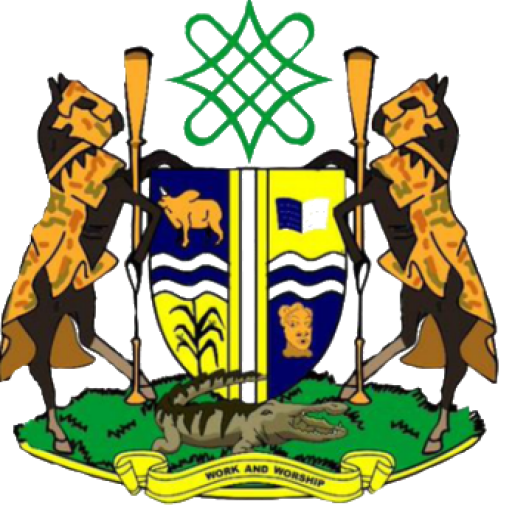
The Kaduna State House of Assembly bill tagged ‘A LAW TO ESTABLISH THE KADUNA STATE MORTGAGES AND FORECLOSURE AUTHORITY TO REGULATE MORTGAGES, FORECLOSURE AND ENFORCEMENT OF REAL PROPERTY AND CONNECTED PURPOSES, 2017’,
is said to reduce the housing deficit in the state of Kaduna at the same time reducing the liability of the state government in maintaining government properties. It must be appreciated that this provision makes it possible for all state residents to acquire homes notwithstanding whatever sectors they belong to.
The Law starts by establishing (1) Kaduna State Mortgages and Foreclosure Authority under section 5 of the law, a corporate body tasked with the duties of creating a conducive environment for accessible and affordable mortgages for the benefit of residents of the State; advising the Governor on the funding, administration and structure of the State mortgage finance program or policy for the benefit of the indigenes and civil servants of the State; harmonizing any mortgage scheme or policy which the State has or may put in place from time to time in connection with the making, processing, placing, registering or administration of mortgages; and
(2) in Sections 16, the establishment of a Mortgage registry through the State Mortgages and Foreclosure Authority, this registry shall receive and process applications for consent of the Governor or the appropriate Local Government Area to mortgage transactions; receive and process applications for the registration and release of mortgages; keep and maintain a register of mortgages; provide a reliable record of information about interests in mortgages in the State to the Authority; interact with third parties concerned with property and mortgages; and receive and process applications for mortgage related searches.
In sections 32, the law clearly sets the covenants for the mortgagor. For instance,
The Mortgagor in all Mortgage transaction shall contain covenants as agreed by the parties:
(1)pay the principal sum borrowed at the times appointed in the mortgage deed, and, so long as the principal money or any part of it remains unpaid, to pay interest on it or on so much of it as for the time being remains unpaid at the rate and at the times and in the manner specified in the mortgage deed;
(2)pay all rates, charges, rent, taxes and other outgoings which are at all times payable in respect of the mortgaged property;
(3) repair and keep in a reasonable state of repair all buildings and other improvements upon the mortgaged property and to permit the Mortgagee or his or her agent at all reasonable times until the mortgage is discharged and after reasonable notice to the Mortgagor to enter the mortgaged property to examine its state and condition;
(4) provide adequate insurance to make good any loss or damage caused by fire, tornado, windstorm, flood, earthquake and lightning and such other related risks to all buildings on the mortgaged property, and, where insurance is taken out, it is done in the name of the Mortgagor with insurers approved by the Mortgagee acting reasonably and to the full replacement value of all the buildings on the mortgaged property. Provided that such insurances shall note the Mortgagee as the first loss payee;
(5) use the mortgaged property in a sustainable manner and to comply with all written laws, regulations and lawful orders applicable to the use of the land
A noteworthy area of the law is on the area of dispute resolution.
A noteworthy area of the law is on the area of dispute resolution.
The law clearly states, particularly in sections 40 that:
(1) All matters arising from, or connected with a mortgage transaction may be resolved by arbitration or any other alternative dispute resolution mechanism.
(2) Where there is no agreement between parties to resolve the dispute by means of any alternative dispute resolution mechanism, the Court may refer all or part of the issues arising for determination in a proceeding before it relating to mortgages under this Law to the arbitration mechanism operational in the State.
(3) All arbitration proceedings conducted pursuant to the provisions of this Law or any other Arbitration Law applicable in the State shall be concluded within a period not exceeding thirty (30) Business Days by which time the arbitration panel must deliver an award.
(4) The arbitration provisions under this Law shall be read in conjunction with the Arbitration Laws of the State.
The law appreciates the speed and cost effectiveness of alternative dispute resolution. Additionally, a mortgagor shall be in default under a mortgage after a period of ninety (90) Business Days has elapsed subsequent to the Mortgagor failing to meet any obligations under a mortgage deed or fulfill any covenant or condition, express or implied in any mortgage deed or any underlying contracts.
Finally, the conditions for application of these mortgage scheme on the part of a private developer are clearly stated in sections 48 of the law. In the same vein the protects innocent purchasers from prejudicial conduct. In section 50 of the law, it is stated that
“An application for registration of a Scheme Plan and issuance of Scheme Titles may be withdrawn only where the withdrawal is no or will not be, detrimental to the interests of any person who has purchased or agreed to purchase any Unit of the property in question in reliance on the application having been made”
In conclusion, it must be recalled that the state government had declared its intention to sell some of its residential quarters to public servants and the general public. The move to sell off 1,990 government houses according to reports was to cut the cost of maintaining the quarters as endorsed by the State Executive Council. Through the Mortgage and foreclosure law, this disposal of property will be achieved. Private developers and the general public have a lot to gain thanks to this enactment.
Eseoghene Palmer Esq.
Legal Practitioner
www.adedunmadeonibokun.com
Photo Credit – www.kdsg.gov.ng
